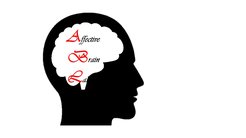Affective Brain Group

The Affective Brain Group investigates how affect (the experience of emotion) affects human cognition and behaviour in normal brain function and in affective disorders (such as depression and anxiety). We study how motivation and emotion (generated in response to an internal thought, external reward and punishment, or social interaction) determine our expectations of the future, our everyday decisions, our memories and our ability to learn. By understanding these basic processes, we aim to identify ways to enhance well-being.
Our research lies at the intersection of neuroscience, psychology and economics. We combine approaches and techniques from these fields to conduct our investigation, including utilizing brain imaging, pharmacological manipulations, neuropsychiatric methods, computational models, genetics techniques, and behavioural experiments. We collaborate with psychologists, neuroscientists, psychiatrists, policy makers and economists worldwide. Our aim is to offer new insight into brain function in both health and disease. The practical implications are considerable, including policy formulation to correct for human biases as well as clinical applications in the treatment of brain dysfunction.
Recent Publications
Bromberg-Martin E.S. & Sharot T. (2020). The Value of Beliefs. Neuron, 106(4), 561-565.
Sharot, T. & Sunstein C.R., (2020). How People Decide What They Want to Know. Nature Human Behaviour, 1-6.
Kappes, A., Harvey, A., Lohrenz, T., Montague, R. & Sharot, T . (2020) Confirmation Bias in the Utilization of Others’ Opinion Strength. Nature Neuroscience , 23(1), 130-137.
Gesiarz, F., Cahill, D. P. & Sharot, T. (2019). Evidence Accumulation is Biased by Motivation: A Computational Account. PLOS Computational Biology, 15(6).
